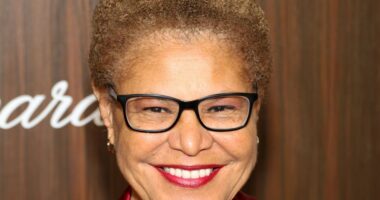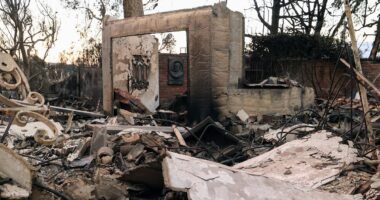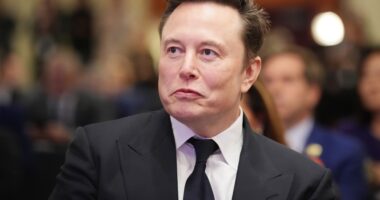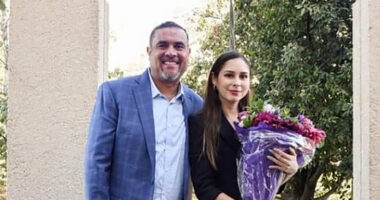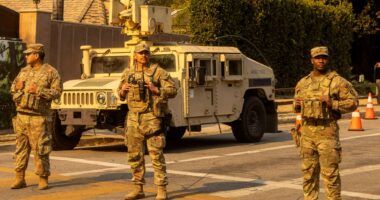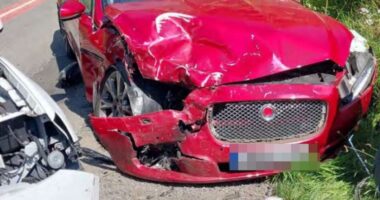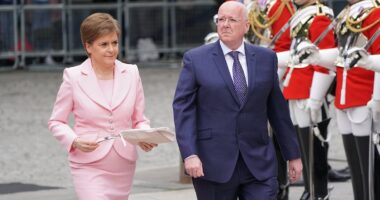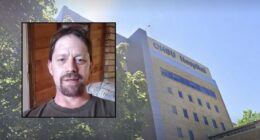Blake Lively is suing her former ‘It Ends With Us’ co-star and director Justin Baldoni over allegations of sexual harassment.
According to TMZ, the Gossip Girl star has accused Baldoni of fostering a toxic workplace atmosphere. She alleges that the director showed her nude videos and images of other women, as well as discussed his supposed previous porn addiction.
Baldoni’s team has refuted the allegations and claim the legal action is an attempt to patch up Lively’s reputation, which suffered in the wake of the beleaguered movie’s release.
The duo starred opposite each other in the hotly-anticipated film adaptation of the popular Colleen Hoover novel by the same name earlier this year.
However, its release was mired by a series of scandals after fans picked up on tensions between Lively, 37, and Baldoni, 40.
Now Lively has claimed Baldoni made inappropriate inquiries about her weight, comments about her dead father and sexual remarks about the cast and crew.
The situation became so unworkable that she and husband Ryan Reynolds demanded crisis talks during filming to put a stop to the behavior, according to the lawsuit.
Lively also requested: ‘No more adding of sex scenes, oral sex or on camera climaxing by BL [Blake Lively] outside the scope of the script BL approved when signing onto the project,’ per the filings.

Blake Lively is suing her former ‘It Ends With Us’ co-star and director Justin Baldoni over allegations of sexual harassment

The Gossip Girl star claims Baldoni fostered a toxic workplace environment during filming
The demands were allegedly accepted by the studio, but the movie’s release was still hampered by a dispute between Lively and Baldoni about how it should be marketed, according to the lawsuit.
Eagle-eyed fans soon spotted the frosty relationship between the movie stars and reports began to emerge about the rift.
Lively claims that Baldoni’s team then engaged in a ‘social manipulation’ campaign to tarnish her reputation.
The lawsuit includes text messages from the director’s publicist to the studio which allegedly say Baldoni, ‘wants to feel like [Lively] can be buried, and ‘We can’t write we will destroy her’.
Baldoni’s lawyer Bryan Freedman hit back at the lawsuit as, ‘false, outrageous and intentionally salacious with an intent to publicly hurt’.
He insisted the legal action is an attempt by Lively to ‘fix her negative reputation’ after rumors emerged of diva-like behavior on set.
This included, ‘threatening to not showing up to set, threatening to not promote the film, ultimately leading to its demise during release,’ according to Freedman.
It Ends With Us became one of the most talked about movies of the year following its release in August, but for all the wrong reasons.

The duo starred opposite each other in the hotly-anticipated adaptation of the popular Coleen Hoover novel by the same name earlier this year

But Lively claims Baldoni made her uncomfortable by showing her nude videos and images of other women and discussing his previous alleged porn addiction
The romantic drama follows Lily Bloom played by Blake Lively as she becomes embroiled in an abusive relationship with Justin Baldoni’s Ryle Kincaid.
One alleged point of contention was how the movie should be marketed, with Lively reportedly wanting to make the tale more upbeat in contrast to Baldoni, who felt it should be more focused on the abuse aspect.
Insiders revealed the concerning truth about the on-set tensions, telling DailyMail.com that Blake and Justin clashed over his ‘dismissive’ attitude to her ‘input’ while they were filming scenes that involved abuse.
The insider claimed that Justin focused only on ‘what he believed was the abusive male viewpoint’ and had a very ‘chauvinistic’ approach to the topic.
But as rumors of the feud persisted, social media reaction began to turn against Blake, who has been criticized for her responses in interviews promoting the movie.
She was blasted as ‘tone deaf’ and ‘shallow’ after she hosted an interview with her It Ends With Us costars and failed to discuss the serious message behind the movie.
Another clash came over Baldoni asking how much Lively weighed prior to a scene in which he was supposed to lift her.
The A-list actress reportedly said this made her feel ‘fat-shamed’, while those close to Baldoni insisted that he was just trying to protect his back following an injury.

Fans picked up on tensions between the lead actors during the movie’s press run

In her lawsuit, Lively claims Baldoni showed her nude images and videos of women, talked about an alleged previous porn addiction and made sexual comments about the cast and crew
Speculation about drama on the set surfaced on BookTok, with social media users noticing that Lively and Baldoni never posed on red carpets together.
Fans also spotted that Lively, author Hoover and none of the other cast members follow Baldoni on social media, though he follows all of them.
Then The Hollywood Reporter confirmed in early August that a rift between Lively, who also served as a producer on the film, and Baldoni was in fact real.
Lively also used her powers as a producer to commission a completely new cut of the movie from film editor Shane Reid, who cut her husband Ryan Reynolds’ hit Deadpool & Wolverine.
There is no indication whether anything from Reid’s cut was used in the movie, which was credited to editors Oona Flaherty and Robb Sullivan.
Unlike many project where controversy affects the box office, It Ends With Us still emerged a box office hit, despite mixed reviews from critics – it scored just 57 percent on rotten tomatoes.
DailyMail.com has approached Lively and Baldoni’s representatives for commnet.
This is a breaking news story, please check back for updates….


